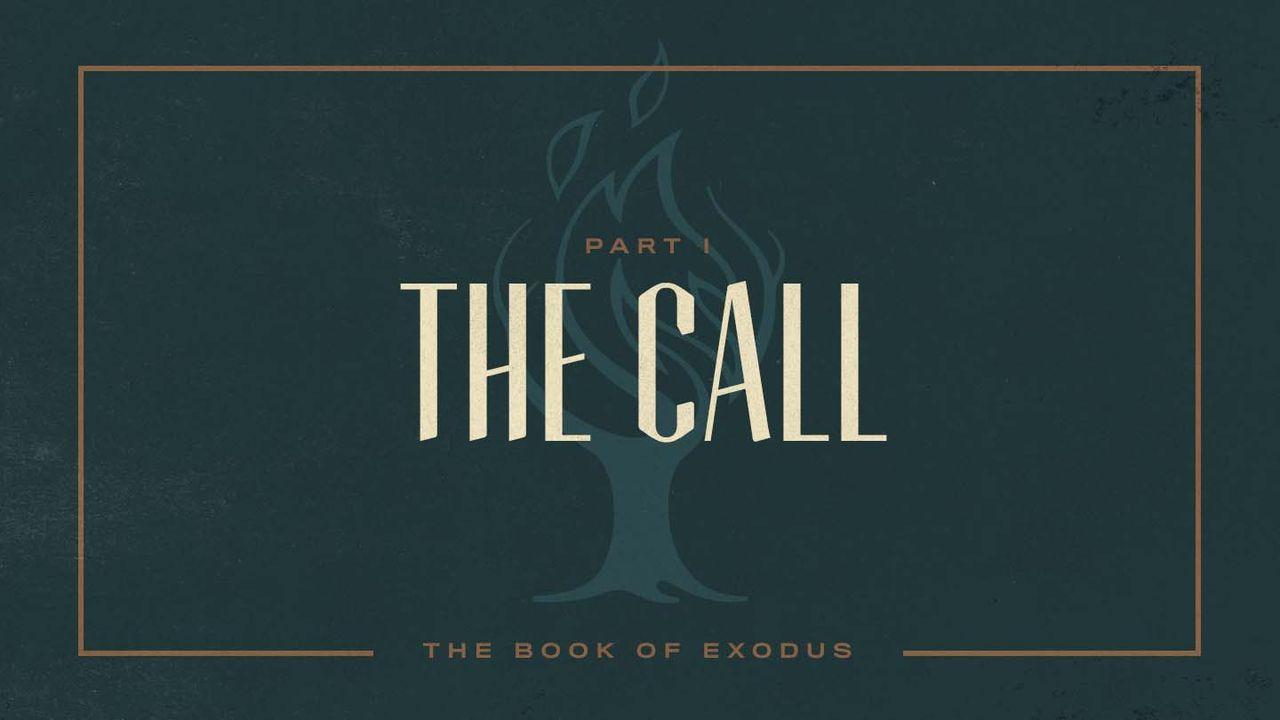Exodus: The CallSample

What Is His Name?
By Danny Saavedra
“Moses said to God, ‘Suppose I go to the Israelites and say to them, “The God of your fathers has sent me to you,” and they ask me, “What is his name?” Then what shall I tell them?’ God said to Moses, ‘I am who I am. This is what you are to say to the Israelites: “I am has sent me to you.”’ God also said to Moses, ‘Say to the Israelites, “The Lord, the God of your fathers—the God of Abraham, the God of Isaac and the God of Jacob—has sent me to you.”’”—Exodus 3:13–15 (NIV)
In The Power of God’s Names, Dr. Tony Evan’s tells us, “In Scripture, a name often connotes purpose, authority, makeup, and character. In fact, a person’s name is frequently seen as an equivalent of that person.”
It’s clear God places great value on names. So, when Moses asks God what name he should give the Hebrews if they ask who sent him, God’s response is one of the most important moments in all of history. Why? Because it’s the first recorded instance of God telling anyone His name: “I am who I am.”
Now, did you notice Moses didn’t question God’s name or ask for any clarification? The implication here is that I AM wasn’t a new or unknown name. Moses and Israel must have known this name in relation to the Lord. It’s also where we get the word Yahweh or Jehovah, which is regarded as a shortening of the whole phrase I am who I am (’eh·yeh ’ă·šer ’eh·yeh) and a running together of the clause into one word.
So, what does this reveal about God? A few things:
- He has no equal. I am who I am expresses that God is wholly independent and relies on nothing for life or existence, He simply is. God is life.
- He’s eternal and unchanging. F.B. Meyer wrote, “Strictly speaking, there is no past or future tense in the Divine Vocabulary.” Theologian Albert Barnes wrote, “The expression I am, though in the present tense, is clearly designed to refer to a past time. Thus, Psalm 90:2, ‘From everlasting to everlasting thou art God,’ applies to God. It denotes continued existence without respect to time, so far as he is concerned. We divide time into the past, the present, and the future. The expression, applied to God, denotes that he does not measure his existence in this manner, but that the word by which we express the present denotes his continued and unchanging existence. Hence, he assumes it as his name, ‘I AM,’ and ‘I AM that I AM.’”
- He’s “the becoming one.” God is whatever is lacking in our time of need. The name I AM invites us to fill in the blank to meet our need. Are you walking in darkness? I AM the light of the world! Are you hungry? I AM the bread of life? Are you Scared, defenseless, or helpless? I AM the Good Shepherd. Are you afraid of death? I AM the resurrection and the life. Are you struggling to find your way? I AM the way, the truth, and the life.
- This is who our God was for Abraham, Isaac, Jacob, Moses, David, John, James, Peter, Paul, and Mary. This is who He is for you and me, and this is who He’ll be for all eternity to anyone who believes in the NAME OF JESUS! Unrivaled, ever present, ever faithful, unchanging, everything we need ALWAYS. To the great I AM be the glory forever and ever. Amen!
Pause: Why does God give Moses this name for Himself?
Practice: Who is the great I AM to you? What do you need Him to be in your life today? Search Scripture this week and find how God already is exactly what you need and pray this truth over your life.
Pray: Heavenly Father, the great I AM, Jesus the Lord, I thank You for being everything I need and for giving me everything I have. I glorify You, and I magnify and bless Your holy, good, and perfect name. I lift up Your all-encompassing name and surrender every part of me to You, my God and Savior. Have Your way in me, send me, and be with me. Amen.
Scripture
About this Plan

In part one of this seven-part study through the Book of Exodus, we'll explore Exodus 1–6:5.
More
We would like to thank Calvary Chapel Ft. Lauderdale for providing this plan. For more information, please visit: http://Resources.CalvaryFTL.org/Exodus









